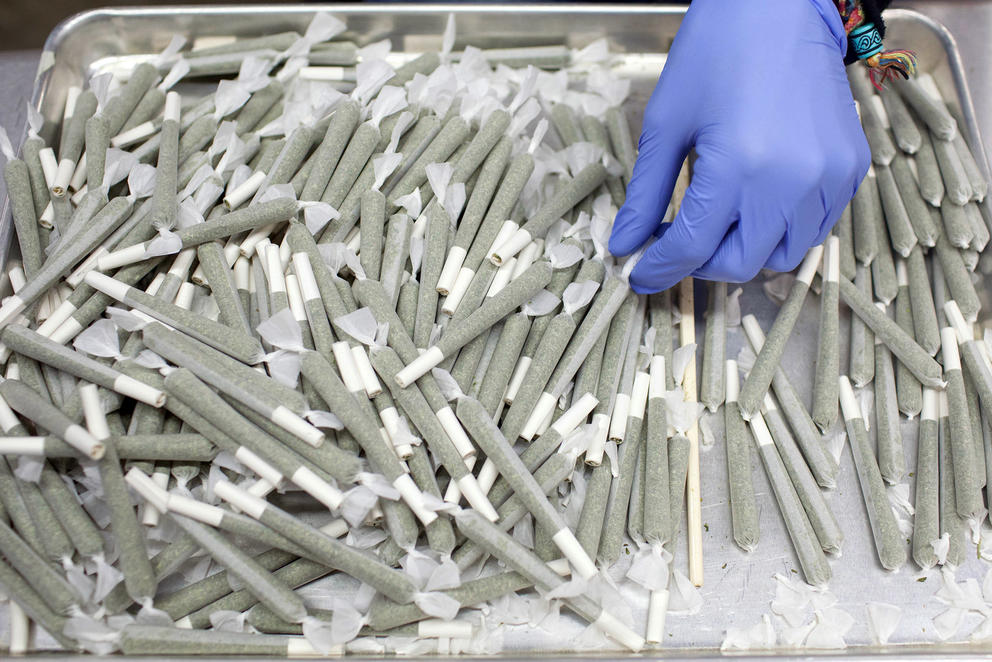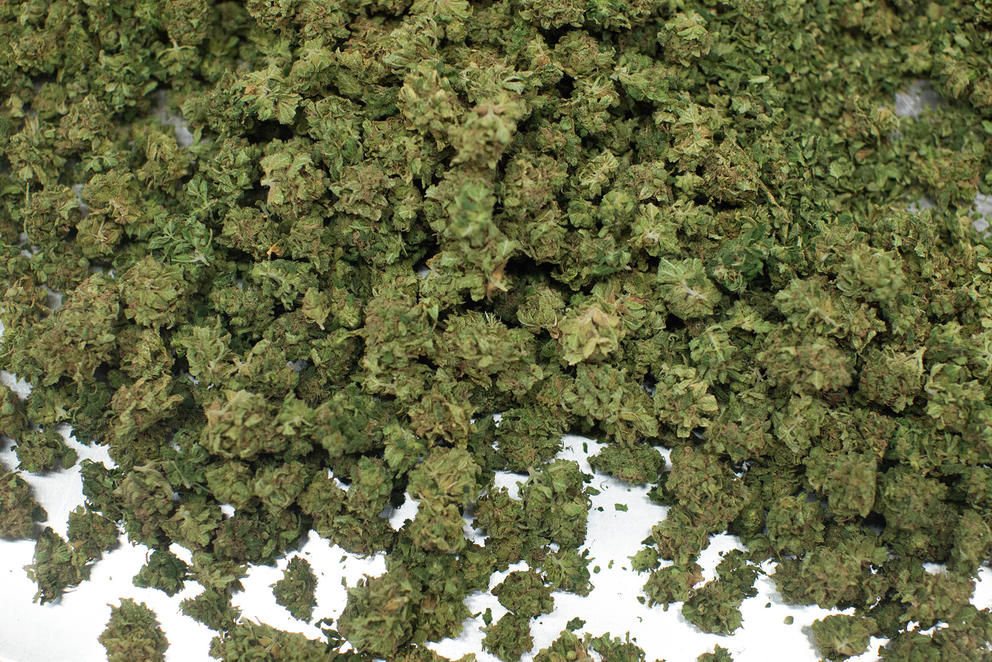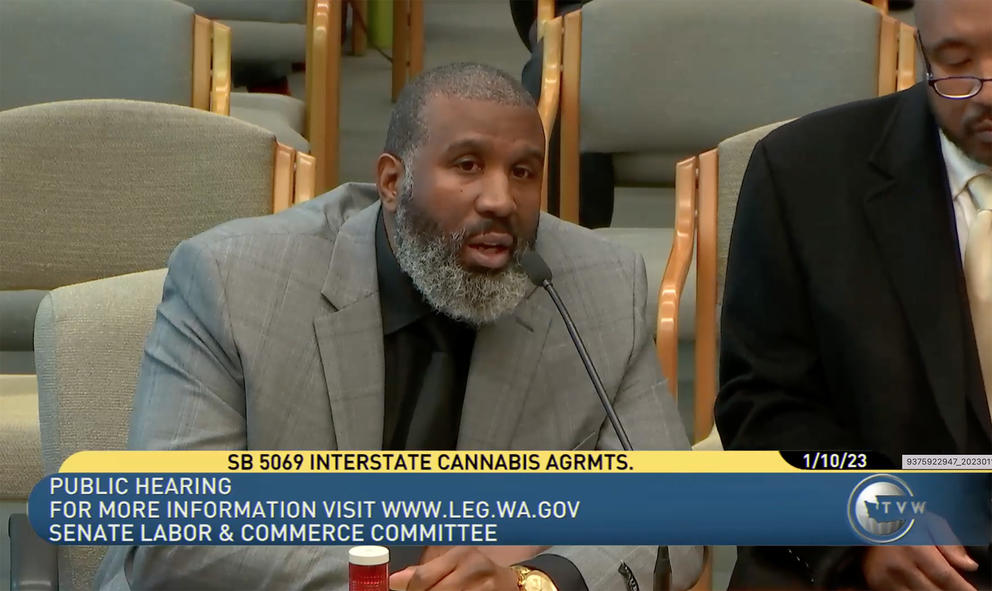“If we are not prepared to commit on a nationwide scale, we are going to be left in the dust,” Rivers said.
This bill passed the Senate Wednesday on a bipartisan vote of 40-8, and now moves on to the House.
At a Jan. 10 hearing before the Senate Labor & Commerce Committee, Vicki Christophersen of the Washington CannaBusiness Association said Oregon and California have already passed similar laws. “What we don’t want is other states to get a head start,” she said.
Currently, 39 states and Washington, D.C., have legalized medical cannabis and 21 states and Washington, D.C., have legalized recreational marijuana. “Each of these legal state marketplaces act almost like an island, as import and export to other states are not permitted,” said attorney Tom Tobin of Perkins Coie's Seattle office, whose practice includes some emerging marijuana issues.
“It’s especially exciting to practice in an area of law that is rapidly developing,” he said.
Several proposals have been floated in Congress to legalize or deschedule cannabis at the federal level – to remove the possession and sale of marijuana from federal laws that make it a felony. Marijuana is currently considered at the same level federally as heroin and other drugs.
The previous Congress considered numerous similar proposals, including the Marijuana Opportunity, Reinvestment and Expungement Act, which would have removed pot from the federal Schedule 1 drug list; it passed the House. A high-profile bill was introduced in the Senate by Sens. Chuck Schumer, D-N.Y., Cory Booker, D-N.J., and Jeff Merkley, D-Oregon. “While Congress did pass a bill to encourage further medical research into cannabis, none of the larger reform bills passed,” Tobin wrote in an email.
Where interstate commerce is concerned, one particular legal doctrine could cause challenges, such as when state and federal laws collide, Tobin wrote. Known as the dormant commerce clause, this doctrine allows courts to strike down state requirements that unreasonably burden interstate commerce.
An example of a ruling based on this clause pertained to mud flaps on vehicles. The U.S. Supreme Court ruled in 1959 that Arkansas had violated the clause when it required curved mud flaps when surrounding states had legalized straight mudflaps, meaning that trucks would need to change their mudflaps at the state line.
“The dormant commerce clause is an important consideration,” Tobin wrote. “Like in the mudflap case, state cannabis policies that impermissibly burden interstate commerce could be subject to challenge.”
At the Jan. 10 hearing, four leaders of the Black Excellence in Cannabis coalition opposed Rivers’ bill, arguing that fewer than 1 percent of the state’s marijuana retailers are Black-owned and less than 3 percent of the producers are Black-owned. “We’re expanding the cannabis industry with no diversity here. … Anything with cannabis should focus on diversity first,” said coalition leader Peter Manning.
In its 2022 annual report, Washington’s Liquor & Cannabis board shows 1,808 active licenses for marijuana-related activities: 889 combination producer/processor licenses, 481 retailer licenses, 168 producer licenses, 235 processor licenses, 23 cooperative licenses, 10 transportation licenses and two research licenses. That includes fewer than five Black-owned retailers and fewer than three dozen Black-owned producers or processors with licenses.
Another bill before the Legislature, Senate Bill 5080, sponsored by Sen. Rebecca Saldana, D-Seattle, addresses racial inequity. It passed the Senate on Tuesday and is now being considered in the House.
“We need to create opportunities and inclusion for the Black and brown communities,” said Saldana at another Jan. 10 hearing. Her bill would prioritize reissuing expired, revoked or never-issued marijuana licenses to low-income areas and areas with high unemployment. Priorities would also be given to applicants who have lived in those areas at least five years and who might be low-income.
The Liquor & Cannabis Board holds at least 40 expired, revoked or never-issued licenses. At the hearing before the Senate Labor and Commerce Committee, Justin Nordhorn, the board’s director of policy and external affairs, said more than 40 licenses will be needed to accomplish SB 5080’s social-equity goals. The leaders of Black Excellence in Cannabis supported the bill, although one leader, Mike Asai, said 100 new processor and producer licenses would be needed to accomplish the bill’s goals.
Other marijuana bills still being considered include:
- Senate Bill 5546 could allow the state’s marijuana producers and processors to form a cannabis commission, similar to Washington’s 21 other agricultural commodities commissions. A petition by five producers would set up a referendum among the state’s producers and processors to create such a commission. The bill is awaiting a vote on the Senate floor. If created, the commission would plan and conduct programs, fund research, advise on packaging and labeling requirements, conduct education programs, improve conditions to favor investments in the state’s cannabis industry, establish universal grading and preparations of cannabis for the market, and work to ensure the state has a steady supply of cannabis.
- Senate Bill 5123 would prohibit employers from testing job applicants for marijuana prior to their hiring. This prohibition would not extend to other drug testing; to post-accident testing; or to drug or alcohol use at work. It would also not extend to applicants in the airline or aerospace industries; to positions that require a federal government background investigation or security clearance; or to other safety-sensitive positions for which impairment while working presents a substantial risk of death. SB 5123 passed the Senate on Feb. 22.
- House Bill 1614 would allow people age 21 and older to grow up to six marijuana plants at their home. Civil penalties could be levied if the plants are visible by the ordinary public or can be easily smelled. It would prohibit home grows by family day care providers and in foster family homes. Landlords would be allowed to prohibit home grows. The bill awaits a vote in the House Appropriations Committee.
- House Bill 1249 and Senate Bill 5340 would allow cannabis retailers to sell additional amounts of certain cannabis-infused products in liquid form to a retail customer in a single transaction. It would also allow anyone 21 or older to provide cannabis-infused products in liquid form to another person 21 or older. HB 1249 passed out of committee but has not been voted on in the House. SB 5340 is awaiting action on the Senate floor.
- House Bill 1453 would exempt qualified medical cannabis patients from a 37% cannabis excise tax. HB 1453 has passed out of committee and is awaiting action on the House floor.





